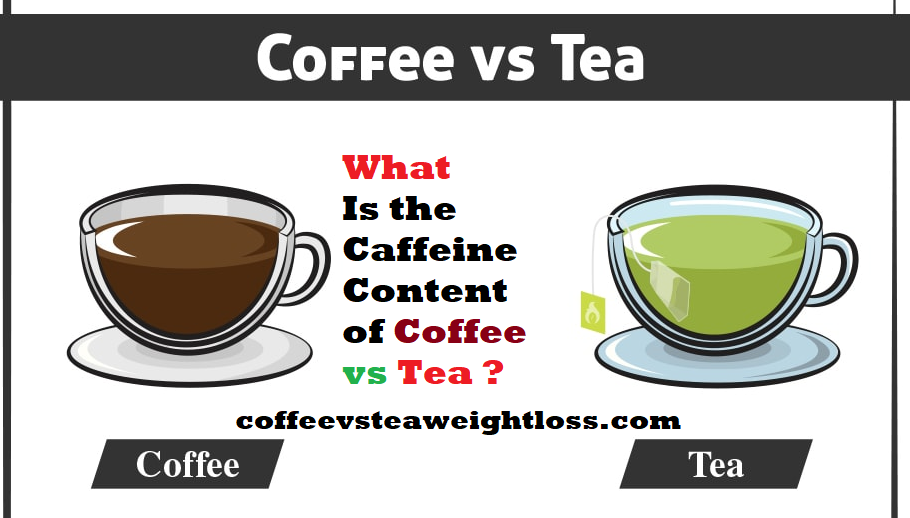What Is the Caffeine Content of Coffee vs Tea
Introduction:
Caffeine, a naturally occurring stimulant, is widely consumed around the world. It is found in various beverages, including coffee and tea. Understanding the caffeine content of these popular drinks is important for individuals who want to manage their caffeine intake effectively. In this article, we will explore the differences in caffeine content between coffee and tea, the factors that affect their caffeine levels, and the potential health effects associated with their consumption.
I. Caffeine in Coffee
Coffee is renowned for its invigorating effects, mainly attributed to its caffeine content. The caffeine levels in coffee can vary based on several factors, such as the type of coffee bean, the brewing method, and the serving size. Generally, a typical cup (8 ounces) of coffee contains approximately 95 milligrams (mg) of caffeine, but this can range from 30 mg to over 200 mg depending on various factors.
Different coffee types can also impact the caffeine content. For example, a single shot of espresso typically contains around 63 mg of caffeine, while a standard drip coffee may have 95 mg. Lighter roasts generally contain slightly more caffeine than darker roasts, as the roasting process can slightly decrease caffeine levels.
II. Caffeine in Tea
Tea, including black, green, white, and oolong varieties, also contains caffeine, although usually in lower amounts compared to coffee. On average, an 8-ounce cup of brewed tea contains approximately 30 to 50 mg of caffeine. However, these levels can vary based on factors such as the type of tea, the brewing time, and the water temperature.
Black tea, which is more oxidized than other types, generally contains the highest amount of caffeine among teas, averaging around 40 to 70 mg per cup. Green tea, on the other hand, contains less caffeine, typically ranging from 20 to 45 mg per cup.

III. Caffeine Comparison: Coffee vs. Tea
When comparing the caffeine content of coffee and tea, it is evident that coffee generally contains more caffeine than tea. A standard cup of coffee has approximately 95 mg of caffeine, while a cup of tea has around 30 to 50 mg. However, these values can fluctuate based on brewing methods and serving sizes.
It’s worth noting that the perception of caffeine effects can differ among individuals due to factors such as tolerance, sensitivity, and personal preferences. Additionally, the caffeine extraction process varies between brewing methods, which can affect the actual amount of caffeine released into the beverage.
IV. Health Effects and Benefits
Caffeine, when consumed in moderation, can provide various benefits. It can enhance alertness, improve focus, and increase energy levels. Additionally, caffeine has been associated with potential health benefits, including improved cognitive function, enhanced athletic performance, and a reduced risk of certain diseases.
However, it’s important to note that excessive caffeine consumption can lead to adverse effects such as anxiety, insomnia, digestive issues, and rapid heart rate. Individual tolerance levels and sensitivity should be considered when determining optimal caffeine intake.
V. Personal Preferences and Tolerance
Personal preferences for coffee or tea often stem from individual taste preferences, cultural influences, and perceived effects. Some individuals may find the taste, aroma, and ritual associated with coffee more appealing, while others prefer the subtleties and calming effects of tea.
Moreover, individuals with a low tolerance for caffeine or those looking to reduce their caffeine intake can opt for decaffeinated coffee or tea. Decaffeinated alternatives go through a process that removes most of the caffeine but can still contain trace amounts, typically ranging from 1 to 5 mg per cup.
Conclusion
In conclusion, the caffeine content in coffee is generally higher compared to tea. A standard cup of coffee contains around 95 mg of caffeine, while tea typically ranges from 30 to 50 mg. These values, however, can vary depending on factors such as the type of coffee or tea, brewing methods, and serving sizes.
It’s important for individuals to be aware of their caffeine intake and understand their personal preferences and tolerance levels. Moderation is key, and it’s recommended to stay within the daily caffeine limits to avoid potential adverse effects.

FAQs (Frequently Asked Questions)
- How much caffeine is typically found in a cup of coffee?
- A standard cup (8 ounces) of coffee usually contains approximately 95 mg of caffeine. However, this can vary based on factors such as the type of coffee bean, brewing method, and serving size.
- Does the caffeine content in coffee vary based on the roast?
- Yes, the roasting process can slightly affect the caffeine levels in coffee. Lighter roasts generally have slightly more caffeine than darker roasts.
- Can decaffeinated coffee or tea still contain trace amounts of caffeine?
- Yes, decaffeinated coffee or tea can still contain trace amounts of caffeine. Decaffeinated alternatives typically contain around 1 to 5 mg of caffeine per cup.
- Is caffeine addictive?
- While caffeine can be habit-forming, it is not considered addictive in the same way as drugs like opioids or nicotine. However, regular consumption of caffeine can lead to dependence and withdrawal symptoms in some individuals.
- Are there any health benefits specific to coffee or tea?
- Both coffee and tea have been associated with potential health benefits. Coffee consumption has been linked to improved cognitive function and a reduced risk of certain diseases, while tea is often praised for its antioxidant properties and potential cardiovascular benefits.




